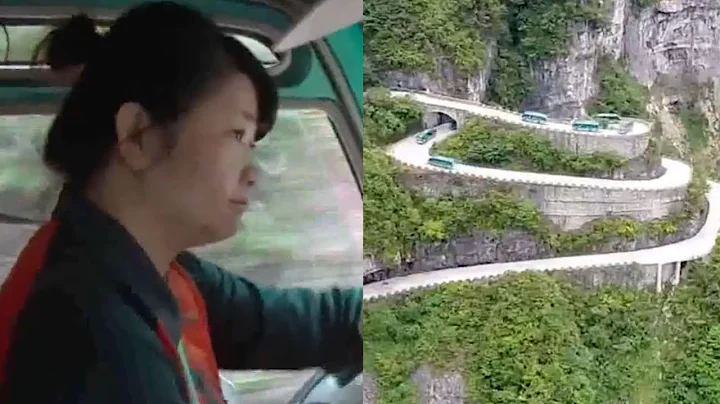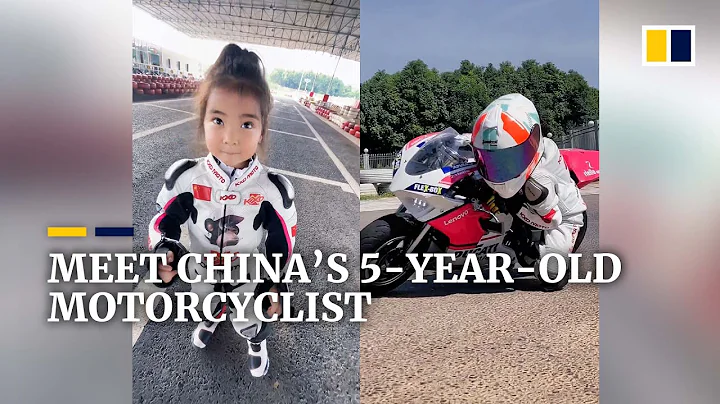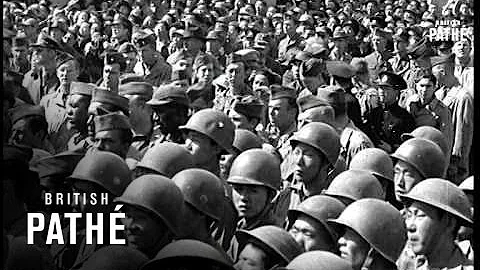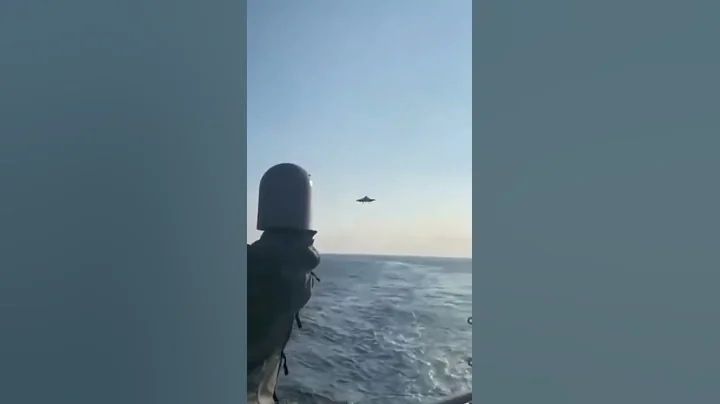One day in April 1966, a car was driving on the Nei (Jiang) Yi (Bin) Highway in Sichuan Province. Sitting in the car was Marshal Peng Dehuai, deputy director of the Southwest Third Front Construction Commission, who was traveling from Chengdu to Yibin to inspect the work. .

Peng Dehuai
When Peng Dehuai learned that the car had entered the territory of Fushun County , he urgently ordered to stop. Then he got out of the car and looked around, only to see the Tuojiang River winding and flowing, dotted with sail shadows; rolling hills, a vast expanse of green. Peng Dehuai couldn't help but sigh: "What a wonderful place! No wonder there are so many talented people. More than 30 years ago, I had a close comrade-in-arms who was from here. Unfortunately, he had already sacrificed his life during the Long March!" After that, he looked solemn and silent. a long time.
The close comrade-in-arms that Peng Dehuai mentioned is the little-known senior general of the Red Army Deng Ping. So what kind of story is there between him and Deng Ping?
Deng Ping was born in Fushun County, Sichuan Province in 1908. His father was a salt worker. When Deng Ping was a child, his family was poor and he was adopted to his uncle. In December 1926, Deng Ping, who had just turned 18, left home resolutely and went to Wuhan. She was admitted to the Wuhan Branch of Huangpu Military Academy and joined the Communist Party of China while in school.
In the winter of 1927, Deng Ping was dispatched by the Party to do troop transportation work in the First Regiment of the Independent Fifth Division of the Eighth Army of the Kuomintang Army stationed in Nan County, Hunan. The leader of this regiment was none other than Peng Dehuai, a patriotic soldier with a strong sense of justice. . The special commissioner of Nan County of Hunan Province of the Communist Party of China introduced Deng Ping to Peng Dehuai and said: "There is an unemployed young man, 21 or 2 years old, knowledgeable in arts and sciences, good at calligraphy and painting. Can you find a place for him to live?"

Peng Dehuai
Peng Dehuai replied: "The first battalion headquarters has a vacancy for a clerical sergeant and a vacancy for a third-class secretary. The former has a monthly salary of fifteen or six yuan, and the latter has a monthly salary of thirty yuan. The salary is not much."
At this time, Deng Ping said: "As long as you can eat. "
So Peng Dehuai appointed Deng Ping as secretary of the First Battalion Headquarters. Under the cover of this identity, Deng Ping immediately started working. He developed many officers and soldiers of the First Regiment into party members and established Soldier Committee. After a while, the party organization explained Deng Ping's identity to Peng Dehuai, and Peng Dehuai was very happy.
Peng Dehuai met Communist Party member Duan Dechang as early as the Northern Expedition, and accepted Marxism under his influence. After the "April 12" incident, Peng Dehuai resolutely submitted his application to the party organization with strong indignation. Application form for party membership. In February 1928, under the introduction of Duan Dechang, the Hunan Provincial Committee of the Communist Party of China officially approved Peng Dehuai as a member of the Communist Party of China. Deng Ping participated in Peng Dehuai's swearing-in ceremony for joining the Party. According to Peng Dehuai's recollection, the portraits of Marx and Engels hanging on the wall during his swearing-in ceremony were painted by Deng Ping.
Soon after, the League Party Committee was formally established, with Peng Dehuai as secretary. Deng Ping considered that Peng Dehuai's goal was too big, and specifically suggested to him that in the future, he should receive and identify important persons from his superiors before introducing them to Peng Dehuai, so as to prevent the regiment leader from exposing his identity and increasing risks.

Deng Ping
As the revolutionary situation developed, on July 17, 1928, Teng Daiyuan, the special commissioner of the Hunan Provincial Committee of the Communist Party of China, came to Pingjiang to discuss the specific matters of the uprising with Peng Dehuai and Deng Ping. Deng Ping took the initiative to offer advice to the two leaders:
In addition to the police station and militia groups, the enemy has no other troops in Pingjiang City. Our one battalion is more than enough. But less than 100 kilometers out of the city, a regiment of enemy regular troops was stationed, which was the biggest threat to the uprising.
Therefore, I suggest that before the uprising begins, a small force be sent to occupy the telephone exchange, cut off communications, and prevent the enemy from calling for help. A battalion of troops must be deployed in the two directions where foreign aid to the enemy must pass 30 kilometers away from the city, and all the heavy machine guns and mortars of the battalion in the city must be allocated to them, and the ammunition must also be fully supplied. , in the name of training tomorrow, we can drive the troops to their destination and set up detonation wires at the same time. In this way, the enemy can be cut off from foreign aid and ensure the success of events in the city.
Peng Dehuai couldn't help but praise after hearing this: "Comrade Deng Ping deserves to be from Huangpu, and he is much better than me, a leader who came from the Martial Arts Lecture Hall!"
On July 22, the Pingjiang Uprising officially started, and Peng Dehuai followed Deng Ping's planned actions indeed succeeded. After that, the uprising troops were reorganized into , the Fifth Army of the Chinese Workers' and Peasants' Red Army, , with Peng Dehuai as commander, Teng Daiyuan as political commissar, and Deng Ping as chief of staff. From then on, Deng Ping became Peng Dehuai's effective military assistant.

Pingjiang Uprising Memorial Hall
After the Pingjiang Uprising, Peng Dehuai led the Fifth Red Army to fight hard all the way. In December 1928, he joined the Fourth Red Army led by Zhu De and Mao Zedong in Jinggangshan. In January 1929, the main force of the Fourth Red Army moved to While advancing into the area in southern Jiangxi, Peng Dehuai led the Fifth Red Army to stay in and Jinggangshan .
Soon after, the enemy launched a siege on Jinggangshan with 10 regiments of heavy troops. Faced with the severe situation, Peng Dehuai immediately convened a meeting of the leaders of the Fifth Red Army to study countermeasures. He told everyone: "There are 10 enemy regiments attacking us now, and we only have more than 2,000 people. Now that the enemy is narrowing the encirclement, we should immediately Breakout. Next, ask the Chief of Staff to make breakout arrangements."
Deng Ping stood up and said: "The breakout point is at the junction of the Jiangxi and Hunan enemies. We will concentrate our superior forces and create a surprise. I will lead the special agent company and machine guns. The company and the mortar company used sharp knives. After the gap was opened, the first regiment and the seventh regiment acted as the left and right wings respectively, forming a safe passage. The political commissar led the fourth regiment to the rear for protection."
Peng Dehuai shook his head repeatedly: "Not appropriate, not appropriate! When it comes to being a sharp knife and a vanguard, you are not as suitable as me."

Peng Dehuai
Deng Ping said firmly: "You are the commander of an army and have a heavy responsibility. The development of the Red Army depends on you. This is the commander-in-chief of Zhu and Mao. This is an important task entrusted to you when we come down the mountain! The military situation is urgent, so don't argue anymore."
Peng Dehuai couldn't say anything when he saw Deng Ping's firm attitude, but he was deeply moved.
The Fifth Red Army followed Deng Ping's plan and indeed broke through the tight encirclement in one fell swoop. After that, the Fifth Red Army moved to fight to rejuvenate the country, raided the capital, and won. However, Deng Ping was unfortunately injured in the battle and had a high fever due to wound infection, so she had to stay in Yudu to recuperate. Before Peng Dehuai left, he repeatedly told the local leader: "We must take good care of Comrade Deng Ping!"
3 months later, Deng Ping returned from injury. After Peng Dehuai saw him, he said excitedly: "I have broken wings." It has grown again!"
In early October 1931, after the third counter-campaign against "encirclement and suppression", the headquarters of the Red Army transferred Deng Ping, Commander of the Fifth Red Army, and He Changgong, Commander of the Eighth Red Army. When the Red Army headquarters reported for duty, Mao Zedong cordially received them both and asked them: "Guess what's the important reason for inviting you here this time?"

Mao Zedong
Deng Ping said: "Either it is the training and rectification of our two armies. "
Mao Zedong shook his head and said: "No, no. Today we are specifically going to 'remove' your two army commanders. We plan to take advantage of this opportunity during the war to establish a regular Red Army school in the Central Soviet Area. We are going to transfer two of your army commanders, four division commanders, a dozen regiment commanders, and political commissars to run this school and train our own talents to run and build the army and lead troops to fight."
Deng Ping and He Changgong happily accepted this. With the first important task, Deng Ping was appointed as the deputy captain and director of education of the Central Military and Political School of the Red Army. The "Red School" was held for 6 periods. Deng Ping gave full play to her talents and trained a large number of outstanding military talents for the Red Army.
In March 1932, Deng Ping was ordered to be transferred back to the Red Army Corps and served as the Army Chief of Staff and Commander of the Fifth Red Army Army.
In mid-April 1934, during the third stage of the fifth counter-campaign against "encirclement and suppression", Chiang Kai-shek assembled 11 divisions and 1 artillery brigade, and under the cover of aircraft and artillery, launched an attack on the north gate of the Central Soviet Area Guangchang attack. At that time, the command of the Red Army had fallen into the hands of Bogu and Li De. They ordered the Third Red Army to defend Guangchang and not allow an enemy to enter, which would violate military law.

The fifth counter-"encirclement and suppression" campaign
After receiving the order, Peng Dehuai and Deng Ping immediately organized all soldiers to repair the trench fortifications day and night. However, under the attack of the enemy's powerful troops and firepower, the Red Army Corps not only failed to achieve the expected combat objectives, but suffered heavy casualties and had to drag the exhausted division out of the battle.
Peng Dehuai and Deng Ping were very anxious about this. They agreed that the disparity in the strength of the enemy and our forces meant that it was impossible to defend. It was better to adjust the troops to mobile defense, leaving only one company in the front to attract the enemy's attack, and the main force was hidden near the outside of the city. In the mountains, when the enemy swarms into the city, the main force of our army seizes the opportunity and comes out of the mountain to attack the enemy's flanks in order to win the battle.
In order to enhance the effect of the proposal, Deng Ping drew a "Guangchang Mobile Defense Chief's Determination Map" overnight. The next day, Peng Dehuai took this picture to see Bogu and Li De and put forward his and Deng Ping's suggestions to them.
Unexpectedly, after reading this picture, Li De said contemptuously: "I heard that Comrade Deng Ping graduated from Huangpu Military Academy , but this picture has many common sense errors: First, the firepower configuration on the position The plotting is not detailed. According to my requirements, the position of a machine gun and a mortar must be clearly drawn; secondly, the curve of the contour lines is different from the map I have there. It seems that Comrade Deng Ping. The Whampoa Military Academy was in vain!"

Li De
Peng Dehuai couldn't help being furious when he heard Li De unbridledly insulted Deng Ping. He pointed at Li De and said: "Comrade Deng Ping has fought side by side with me for 6 years. Do you know how many good ideas he had and how many battles he planned? The Red Army Corps has grown from more than 2,000 people during the Pingjiang Uprising to more than 10,000 people today. It is inseparable from Comrade Deng Ping's military talent. Isn't it like you Li De? Comparable!"
Li De became angry and shouted at Peng Dehuai: "You must carry out the orders of the Central Revolutionary Military Commission, otherwise you will be responsible for the consequences!" The two broke up unhappy.
After Peng Dehuai returned to the Corps Headquarters, Deng Ping asked him with concern: "If you don't come back, I won't be able to eat. How was the conversation?"
Peng Dehuai said: "Li De and I had a big quarrel, and I slammed the table. , he smashed the cup, and I scolded him as "a bastard who has no regrets" and he scolded me for "retreating without authorization" and threatened to enforce military discipline on me."
Deng Ping said angrily: "Li De doesn't understand what it means to be in southern China. How to fight in hilly areas, but he has always regarded himself as the emperor and is domineering. You scolded this kind of person well, and it also made me feel depressed for a long time!"
Under the command of Bogu and Li De's wrong line, the Red Army counterattacked for the fifth time. The "encirclement and suppression" campaign failed and the Long March had to be carried out. In January 1935, after the Zunyi Conference was held, Mao Zedong's leadership of the Red Army was reestablished. Deng Ping felt very pleased. He firmly believed that as long as there was Mao Zedong's correct leadership, the Red Army would be able to win the war, and there would be hope for China's revolutionary cause.

Zunyi Conference Oil Painting
html On February 23, the Central Revolutionary Military Commission ordered the Red Army to reoccupy Zunyi before the end of the month to mobilize the enemy back south. Under the command of Peng Dehuai and Deng Ping, the Red Army Corps won several battles in a row and arrived at Zunyi City on the evening of February 27.That night, Deng Ping took Zhang Aiping, the political commissar of the Red 11th Regiment, and Lan Guoqing, the chief of staff, and braved the continuous rain and biting cold wind to personally come to the outside of Zunyi City to reconnoiter the enemy's situation. While observing with a telescope, Deng Ping said to Zhang Aiping: "You first restrain the enemies defending the city. After the main force of the army arrives, launch a general attack tonight. Zunyi must be captured before dawn. The situation is urgent. The enemies in Zunyi will be reinforced tomorrow." Xue Yuebu may arrive..."
Zhang Aiping was listening attentively when she suddenly noticed that Deng Ping's voice was broken, and then Deng Ping's head fell on his right arm. Zhang Aiping took advantage of the night and looked to the right, and saw that Deng Ping's red blood had stained her clothes. It turned out that a cold bullet hit Deng Ping in the head. He died heroically on the spot. He was only 27 years old.

Zhang Aiping
After Peng Dehuai learned the bad news, he rushed to the front line immediately. He opened the white sheet covering Deng Ping, howled loudly, and then shook Deng Ping's body vigorously and said: "Deng Ping, what's wrong with you? You can't die. Ah..."
After a long time, Peng Dehuai calmed down. He took out his handkerchief, carefully wiped off the blood and dust on Deng Ping's face, and then bowed his head in silence. After the silence, Peng Dehuai said to Zhang Aiping: "Give the chief of staff a new military uniform. If you don't have it, go to the General Supply Department to get it and say it was me!"
At this time, Liu Shaoqi, director of the Corps Political Department, held Peng Dehuai's hand tightly. Hand said: "Lao Peng, you can rest assured to command the war. Deng Ping's funeral affairs will be handled by our Political Department. I promise you that we must be worthy of the martyrs and we must satisfy you!"
The time for the general offensive has finally arrived. Peng Dehuai picked up the phone and issued an order to the troops: "All ministries, the time for the general offensive has come. I give the order to launch an attack! Capture Zunyi and avenge the Chief of Staff!"
Under the fierce attack of the Red Army, most of the Guizhou army defending Zunyi was wiped out. A small number of them escaped, and our army captured more than 1,200 enemy soldiers and achieved its first major victory since the Long March.
After capturing Zunyi City, Zhang Aiping composed a poem to express her condolences for Deng Ping:
When will the long night fall? Huangpu practices martial arts and seeks classics.
The Northern Expedition braved the rain of bullets to fight against the bandits, and the Pingjiang Uprising helped the beacon smoke.
It was hard to plan the encirclement and suppression, but shouldered the heavy responsibility for the Long March.
Blood was shed under the city of Zunyi, and the three armies cried for strange men on the journey.

The statue of Deng Ping when she died
On November 21, 1949, Zunyi was liberated. Peng Dehuai immediately issued instructions to find Deng Ping's remains and bury them separately. After receiving the order, the Zunyi Prefectural Committee and the Commissioner's Office immediately set up a special leadership group to investigate Deng Ping's remains. However, because no one knew the specific location of Deng Ping's remains at the time, Zunyi cadres and the masses spent several years searching for it. Still no whereabouts.
In the summer of 1957, Peng Dehuai personally provided some valuable clues to the Zunyi Prefectural Committee: Due to the tense war at that time, our army bought a black lacquer coffin to bury Deng Ping's body on the street where the Third Red Army Corps was stationed. The Red Army commanders and fighters were buried on the hillside in the northern suburbs of Zunyi City, and there is no record of this on a monument.
The Zunyi Prefectural Committee organized a search again based on this clue, and finally confirmed that the Red Army buried in the Luo family tomb in Songzikan was Deng Ping's tomb. The prefectural committee organized people to dig up the grave. After careful inspection, they found that there was a small hole in the upper right forehead bone of the body. They determined that it was indeed the hole where the bullet penetrated. It was initially determined that it was Deng Ping's remains.
To ensure nothing goes wrong, the Zunyi District Committee invited Shi Xinan, political commissar of the Guizhou Military Region, to Zunyi for identification. Shi Xinan worked under the leadership of Deng Ping for a long time during the Red Army period. After his confirmation, the remains buried here are those of Deng Ping.
After consulting the Central Military Commission, the Zunyi Prefectural Committee buried Deng Ping's remains on Xiaolong Mountain to the left of Fenghuang Mountain, the mountain behind the place where he died. The cemetery faces south and is solemn in design. Pines and cypresses and other evergreen trees are planted around the tomb. For the public to admire.

Martyr Deng Ping’s Tomb
Martyr Deng Ping will live forever!


![[EngSub]Harvard Graduate Transformed the Village in 4 Years 學霸4年改造四川小村,美成全國範本 - DayDayNews](https://i.ytimg.com/vi/5KW8zgo6rMk/hq720.jpg?sqp=-oaymwEcCNAFEJQDSFXyq4qpAw4IARUAAIhCGAFwAcABBg==&rs=AOn4CLCXO7_VmDR8wEJ6J3DzDCgYPqJavw)


















